Dear Maasi: “Should I confront the person responsible for my khatna (FGM/C)?”

Dear Maasi is a column about everything you wanted to know about sex and relationships but were afraid to ask! It’s a partnership between Sahiyo and WeSpeakOut, and is for all of us who have questions about khatna (FGM/C) and how it impacts our bodies, minds, sexualities and relationships. We welcome you to submit your anonymous questions. Dear Maasi, Over the last year, I’ve been thinking a lot about khatna (FGM/C) and confronting my mother about it. We’re not very close (emotionally or geographically), but I do visit a few times a year, and she’s a terrific grandmother to my kids. We’ve never talked about khatna, so I have no idea about her current stance on it. I’m nervous that raising the topic will strain our relationship. But to be honest, every time I see her, I have an urge to ask her about it and I have a feeling it could help my own healing. Should I do it? –Naz Dear Naz, Thanks for this important question. In my last column, I offered advice to a mother who took her daughter for khatna (see Dear Maasi: Will My Daughter Ever Forgive Me?). She was in almost the opposite position as you. Talking about FGM/C with your mother could be fruitful and healing for you both. But keep in mind that a good outcome depends on whether you and your mother are ready and open for the conversation. I also want you know that having this difficult conversation is not required for healing. Everyone’s healing journey is different. In my case, healing came from writing and from leaning on a therapist, friends and my partner. I’ve never talked to the relative who was responsible for the khatna because we are not close. I no longer feel anger toward her, and while she hasn’t earned my forgiveness, I can feel compassion for her experience. But again, that’s me. Renée Bergstrom, an FGM/C survivor and activist from the U.S., had a different experience. Here’s what she told me about speaking to her mother: “I did not tell her about my difficulty giving birth or other problems until she was 96-years-old. I realized then that I had not forgiven her so I wrote a letter giving the details of what I had endured and she apologized by letter. She lived to be 101 and we were at peace as I sat by her bedside. She was free of guilt and I of resentment.” Here are some things to consider before beginning this process: #1 Rather than framing this as a “confrontation,” think of this as a conversation that requires some preparation. #2 What do you hope will happen? For example, are you seeking an apology? Closeness? More information? Are these outcomes likely with your mother? #3 How dysregulated/triggered do you feel when you think or talk about FGM/C? Ideally, you’d want to remain grounded. Consider doing “practice” conversations with supportive family, friends or professionals to check in about this. Try the Mumkin app if you need more practice. #4 These practice conversations might offer insights about how to begin in a calm, exploratory way. You might also learn what information you wish to share, and what you don’t want to disclose. #5 Some survivors can feel re-traumatized by a negative or defensive response. How might you feel if she: -Denies it happened? -Is pro-FGM/C? -Minimizes your concerns or says you are overreacting? -Gets angry with you for raising the conversation? #6 What support can you have in place if the conversation upsets you? One last note: FGM/C is an intergenerational trauma, so it’s likely that your mother experienced it too and might have her own unresolved trauma. Going in calmly and slowly is especially important given this. Naz, the bottom line is that there is no simple answer here. If you do have this conversation, may it go well for you and your mother. Healing from the harm of khatna is our birthright! —Maasi About Maasi, aka Farzana Doctor: Farzana is a novelist and psychotherapist in private practice. She’s a founding member of WeSpeakOut and the End FGM/C Canada Network. She loves talking about relationships and sexuality! Find out more about her at www.farzanadoctor.com Disclaimer: While Farzana is full of good advice, this column won’t address everyone’s individual concerns and should not be used as a substitute for professional medical or psychological care. For more resources on this subject, consider watching some Voices to End FGM/C videos (Convincing, Forgiveness, A Daughter, Conversations With My Mother), or contacting the support line for FGM/C survivors.
My experience of learning about female genital cutting: An outsider’s perspective

By Madrisha Debnath Not belonging to a community where female genital cutting (FGC) is practiced, I have often faced questions on how I can understand how the practice could occur if I am an outsider and the religion or culture I grew up in never condoned it. Interestingly, those who have questioned me have been peers at my university, who also did not come from FGC-practicing communities. But, each of us have grown up in a certain cultural community that has performed certain traditions or norms for generations. In other words, the societies we live in have constructed certain social norms and practices that are followed by its members to keep it going. Therefore, understanding this perspective, one can relate to the practice of FGC according to their own social position and be reflexive in terms of their subjectivity. When I first learned about female genital cutting, I was shocked by the physical pain a child undergoes to fit into the heterosexual matrix regulated by the institution of marriage. Not knowing anything about the practice or having experienced it, but being a female with a clitoris, I could not bear the distress of understanding how painful it must be to be cut at the site of more than 8,000 sensory nerve endings. I kept on watching and re-watching documentaries, the narratives on FGC, and listening to survivors’ stories. The more I listened to their stories in an attempt to understand the social process, the more I felt the survivors’ trauma. I tried to understand the agency of the women, particularly the role of a mother or grandmother taking part in the very system that regulated their own body. Why is it that the mother, the one who could possibly be the most sympathetic toward the child, could subject her daughter’s body to FGC? According to the stories of the survivors, even in cases when the memory of the cut may be repressed, the “body memory” can remember the pain. The effect of the trauma may be repeated every month as the girl hits puberty, during intimacy, and again potentially through her future daughter’s experience with FGC. The first thing I could relate to culturally from my own social construct was how the institution of marriage itself works. In my opinion, marriage is actually a relation from a man (the father) to another man (the husband), whereby the woman is transferred as the symbol of lineage. When the occasion of marriage takes place, generally a change in location takes place for the woman, as her guardianship is being transferred. I recently attended my brother’s wedding in India whereby the next morning my sister-in-law had to leave her house and come to our place of residence. Although belonging from the groom’s side, I was supposed to be rejoicing and welcoming my new sister-in-law. But I couldn’t hold my tears as the bride left her family. Being a girl, I could not withstand the final moments of my sister-in-law departing from her mother. The bride and her mother burst into tears. The ritual of Kanyadaan, or giving away the female child with the virtue of generosity and charity, performed by the father of the bride to her husband, ensures her transfer from her father’s family to her husband’s family as a symbol of lineage. Before leaving her father’s family the daughter performs kanakanjali, which involves paying off her mother’s debt. But is it possible to pay off a mother’s debt? The mother, who had once undergone the same rituals and practices, may have once felt the pain of leaving her family aside, but now it is her daughter who has to undergo the same practices. How can the mother hold her tears? She had to once leave her family and now her daughter is undergoing the same practice. There have also been counter spaces of resistances within the communities against these norms. For example, in my community now, female priestesses are challenging the perception that a priest could only be someone who is male since the female body was not considered to be “pious” for performing rituals because of the taboo of menstruation associated with them. Challenging this perception, the female priestesses are performing marriage rituals without the norm of kanyadan. The women are advocating marriage to be a union between two equals and that one cannot be given away as a gift to another. The rituals that are being performed by the female priestess simply denote the union of two families, where the bride is not considered as a “gift” since she is not a commodity which can be simply given away. Drawing a parallel between the norm of marriage and the transference of guardianship of the woman from the cultural institution I belong to, to that of how FGC can continue is how I can understand how rituals or practices can continue generation after generation. We perform them because they have been performed by others before us in our communities. The questions that I’m left with are whether there is actually any choice by the girl or woman herself to undergo the practices whether in the example of marriage I gave or by the girl who undergoes FGC? And in the case of FGC, is it the mother or the grandmother who chooses to facilitate the practice to be performed on their daughter, or is it the performative nature of tradition that keeps the practice going, being repeated and recited again and again?
Saved by a lie: A story of female genital cutting
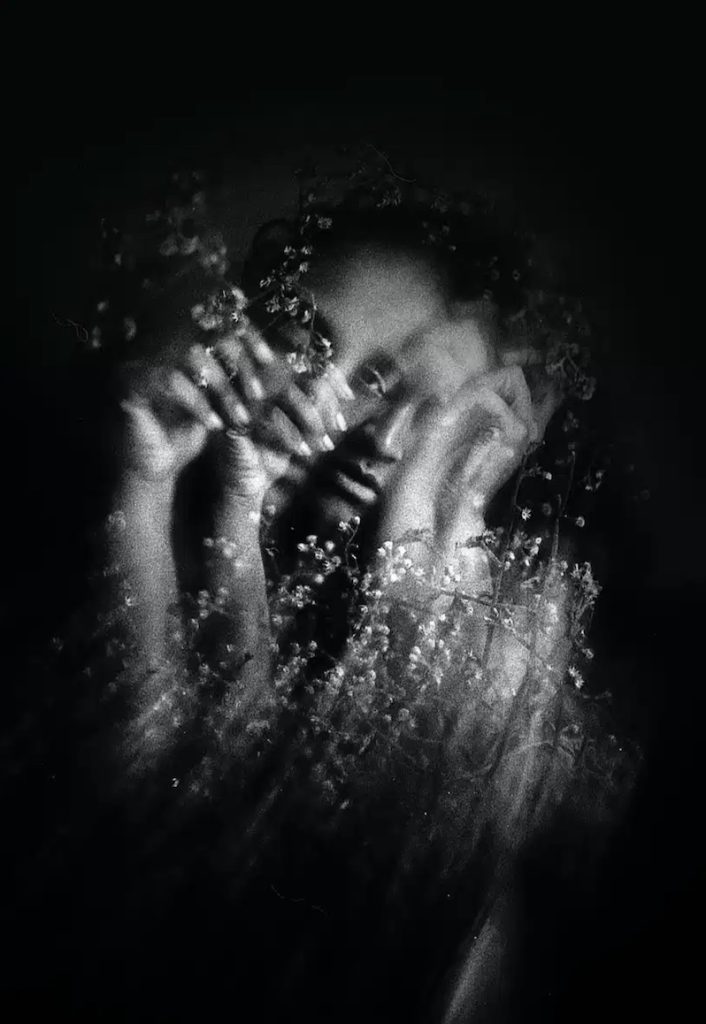
By Zainab Khambata Age: 17 Place of residence: Mumbai, India My maternal grandmother prides herself on being the perfect blend of modernity and religion. But when it came to her own daughter who is my mother, in spite of her misgivings, she still fell in line and got my mother circumcised or cut. Ask my grandmother why she did it and the reasons are numerous. Her mother asked her to do it. She lived in a joint family and all the cousins were cut. She didn’t know how to openly defy social norms and say no. The oddly mystifying voice of reason: if everybody is doing it, maybe it is the right thing to do. That is how Bohri women still continue to be cut in this day and age by their mothers and aunts and grandmothers. My mother still remembers the day she was cut as a child very vividly. She wasn’t told anything at all, simply pounced upon by her aunts and a “maasi,” or auntie, who used a razor on her. Then she was asked to rest to let the bleeding stop, given a bar of chocolate, and as a bonus, no school the next day. Life went on for my mother as usual without any mention of the incident or what had transpired. All was good and forgotten until my paternal grandmother started hounding my mom to get me cut. It was this whole maahol, or social environment, where mothers of girls my age were more than happy to play reminder and ask if I was cut yet because they had already had their little girls cut. My mom read about it and realised the physical repercussions of it, the bleeding and scarring, emotional repercussions and trauma, and in some cases, even sexual frigidity. You may never really forget what happens to you even though you are not informed about it at all. Upon inquiry, my mom never got a satisfactory answer as to why girls are cut besides the fact that it’s Sunnat, or encouraged. Some moms said it was for hygiene purposes; others said it would keep a girls’ potentially “sinful” thoughts of a sexual nature at bay. But the final straw was when she was told it may heighten mental and physical intimacy between couples. She realised then that many people have a myriad of confusing reasons to justify cutting. When the pressure became too much from my grandmother and the other moms around her, my mother resorted to the only way she knew to keep me safe, by telling everyone that the deed was already done. My paternal grandmother, who was hell bent on getting me circumcised like all my cousins to uphold her own religious morals and beliefs, made it a point to cross-check with my maternal grandmother whether I was truly cut. My maternal grandmother was smart enough to say yes, mostly to atone to my mom and not let history repeat itself for the sake of my bodily autonomy. In this way, my paternal grandmother was satisfied and she let it rest once and for all. My mom had actually managed to prevent my cutting by telling everyone I had undergone the practice. Ingenious or devious? No matter what, I am grateful.
Sahiyo staff spoke in a symposia entitled Mothers and daughters: continuity, love, fear and belonging
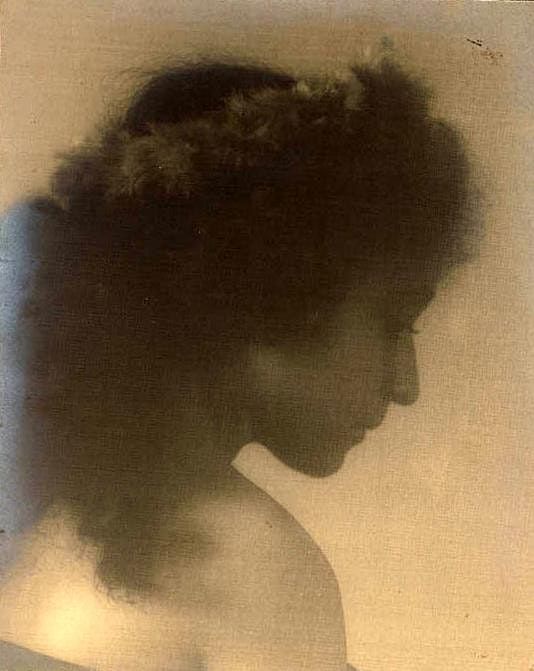
Sahiyo Communications Coordinator Lara Kingstone and co-founder Mariya Taher were honored to speak on behalf of Sahiyo in a symposia entitled, Patriarchal Inscriptions: Female Bodies Contested, Invaded, Defended & Owned, hosted by King’s College London Faculty of Arts and Humanities. [youtube url=”https://youtu.be/PZ3YZQxc7FM”]W The session that Sahiyo participated in served to address feminism, survivors’ relationships with mothers, other forms of gender-based violence and abuse, as well as systemic injustice. The symposia in general served to address the following questions: “Feminism has made the exploration of relations between mothers and daughters central to its project. How are these considered fraught, damaged, broken, or, in the eyes of FGM-supporters, strengthened by clitoridectomy? How does FGM compare to other abuses women endure that fracture their inclination to identify and support one another, instead of becoming invested in, or complicit with, systemic injustice?” Taher and Kingstone discussed and presented Sahiyo’s Voices to End FGM/C: Using Storytelling to Shift Social Norms & Enhance Prevention as part of the panel on Mothers and daughters: continuity, love, fear and belonging. Many storytellers and survivors explore fraught or strengthened relationships with their mothers in their digital videos as part of the Voices to End FGM/C program in collaboration with StoryCenter. By sharing these stories with participants, Sahiyo aimed to further understanding regarding the deeply complex mother-daughter relationship in the context of FGM/C. Read the full program.
Crying out our mothers’ grief: How we allowed female genital mutilation to flourish in our communities

By Tamanna Taher When I began writing an article on female genital mutilation (FGM), I was adamant that my research be thorough, and my opinions be carefully articulated. However, I did not realise the mammoth task the latter would become. It has been two years since I started writing this article. I was a sophomore in college when I began, and I sit here as a senior, writing to pledge my solidarity to end FGM. My parents had managed to shield me from the hushed conversations that I always knew were happening. I was 14 years old when I was finally let into the discussions recounting personal experiences and stories from survivors in the family. I remember sitting in the backseat of my parents’ car, asking what they were whispering about. My father said it was okay to tell me, and explained FGM, or khatna, as it is known in the Dawoodi Bohra community. “It is when a female is circumcised.” “Circumcised? How? What?” “They (carefully separating us and them), believe that for a woman to be pure, she must undergo a surgical procedure in which she is circumcised.” “Oh.” At this moment, I was as any teenager finding out about such an issue would be – very uncomfortable. Deciding not to ask anything else, I sat back and wondered what exactly was there to be circumcised down there. This went on for a few very silent weeks. However, I finally mustered enough courage to ask the question that had been haunting me. Had it been done to me? I remember awkwardly questioning my mum one day, asking whether I was so young that I did not even remember. She informed me that she was vehemently against it, and neither me, nor my sister, had this procedure done. She said she would never, as she was a victim of it herself: a victim of family traditions and beliefs, and another one of the countless victims of groupthink. She said that she remembered her experience, and it was not something a woman forgets. She was seven years old. My mum never called herself a victim. She told me that she had never understood it fully. At the time she drew a parallel between being cut and getting an ear piercing. That is why, she explains now, she never questioned her mother. That is why she believes her mother never questioned my great grandmother. She thought of it as a necessity of growing up – not a religious doctrine, but a cultural tradition. I have chosen the words victim and survivor very purposefully. I believe if this had truly been something she did not feel was an injustice to women around the world, my mother would have chosen us to carry the burden of the tradition. But she stepped back, separating herself from the powerful clutches of “Log kya kahenge?” (“What will people say?”) She saved her daughters from the injustice she was too young to save herself from. I will forever be grateful to my mother, for being so brave and standing up against members of the family she loved and trusted, fighting them and protecting us from the practice that she had to suffer from herself, of which countless others still have to suffer the consequences. I began asking the women around me whether they had been subjected to any form of FGM. I was appalled at how many of them said yes. I was even more revolted when I found out that my family had been divided by this issue. There were people around me that agreed with what was happening, so much so that they decided to boycott all the members of the family who saw FGM for what it was – child abuse. This was a confusing time for me. I was very close to a cousin of mine who defended the right to have been cut. She saw it as something that should be a choice. I was almost swayed by her. I regret that I allowed that to happen, and I am embarrassed that I did not realise sooner the repercussions of staying silent in such situations. I see now that khatna is not a choice. The girls who are cut are not consenting. They are usually ignorant about what is being done to them – realising the effects only in adulthood, and at which point they must silently bear the psychological pain and trauma. A girl, in the moment, might only feel the excruciating pain of the instrument being used to perform the procedure, but when she becomes a woman, she will realise that the cuts run deeper than what she previously thought. This is why so many people have begun to speak up. This is exactly why Sahiyo – United Against Female Genital Cutting as an organization exists. Children cannot make these decisions, and you cannot legally call them consenting beings. They do not have full knowledge, and they do not realise the gravity. To anyone who argues otherwise, I would like to present several stories. One of the women I spoke to told me that she had been promised ice cream if she went. She was only 8 years old; an adult would recognise that as manipulation. Another told me that her mother said she was going to see a doctor because she was sick. That is universally recognised as deceit. I even had someone tell me that her mother had slapped her and told her that she was doing this for God. That is plain and simple coercion. But, most importantly, all of the above is child abuse, manifesting in its verbal, emotional and physical forms. You might be thinking, but what will speaking up do? We need you to understand that every voice matters because we are speaking for those that had been stripped of theirs. You may also be thinking there is so much awareness. The number of girls subjected to this must be falling. That is far
Conversations with my mom about khatna and betrayal
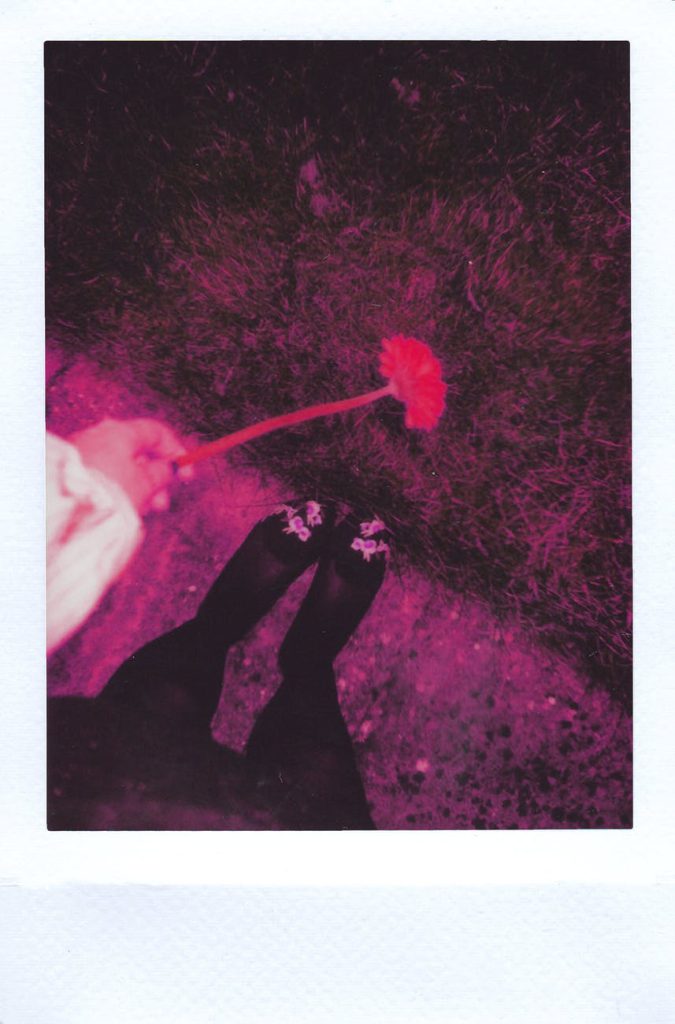
By Zahara Kagalwalla I am a chatty person. I call up my best friend and prattle to him even about the most mundane development in my life like the latest teatime snack I gobbled (muesli, definitely a poorly thought out choice). So when I am distressed, there is furor on the phone. Despite my love for babbling and our nine years of friendship, Phiroze did not know about my khatna experience, or female genital cutting, until very recently. I preferred to tuck it away in a corner of my brain because if I don’t acknowledge it, I can avoid processing the trauma. When I departed for university, things changed. I picked up a gender studies major and began learning about concepts such as informed consent and an individual’s right over their own body. This made me more and more uncomfortable with my “ignorance is bliss” policy. The trauma that I had successfully managed to bury in my subconscious emerged, and I finally began the journey toward understanding what happened to me ten years ago. Simply, I was cut, and I don’t like it. In fact, I was infuriated. One fine day, I decided to dial-up my mom and have a conversation, but really it wasn’t a conversation. I went in ready to pick a fight. I was the victim and my mother was the perpetrator. How could you? My accusatory tone coupled with my hot tears put her in defensive mode. She justified her actions: “We took you to a doctor, not to an unqualified middlewoman in Bhendi Bazaar. You experienced no pain.” “Khatna doesn’t affect your life; it is ritualistic.” “Maasi, I, and aunty have all undergone khatna. We are just fine even thirty years later.” With emotions running high, I was unable to communicate my point. Whether it hurts or not, whether the procedure was done in a doctor’s clinic or not, nothing changes the fact that it is my body and my rules. This definitely wasn’t a conversation. Two years later, I realized that I left empathy at the doorstep during my first discussion about khatna with my mother. I disregarded that she came from a place of love, and she never intended to cause me any harm. I did not even bother to understand the kind of social pressure she faced from my extended family, and how her expressions of discomfort with the ritual were severely squashed. I failed to acknowledge the constant guilt she lives with for compelling her daughter to partake in a primitive tradition, particularly when she witnesses my personal struggle toward self-acceptance. She fought for me, but the tremendous social pressure did not let her win. Always uncomfortable and unsure about the ritual, my mother has now taken a stance against it. She couldn’t protect me, but she will protect her future granddaughter. Now we fight against khatna together, confident that my daughter will not face female genital cutting.
मेरी अनुमति के बिना मेरे सबसे गुप्त अंगों को काटा गया
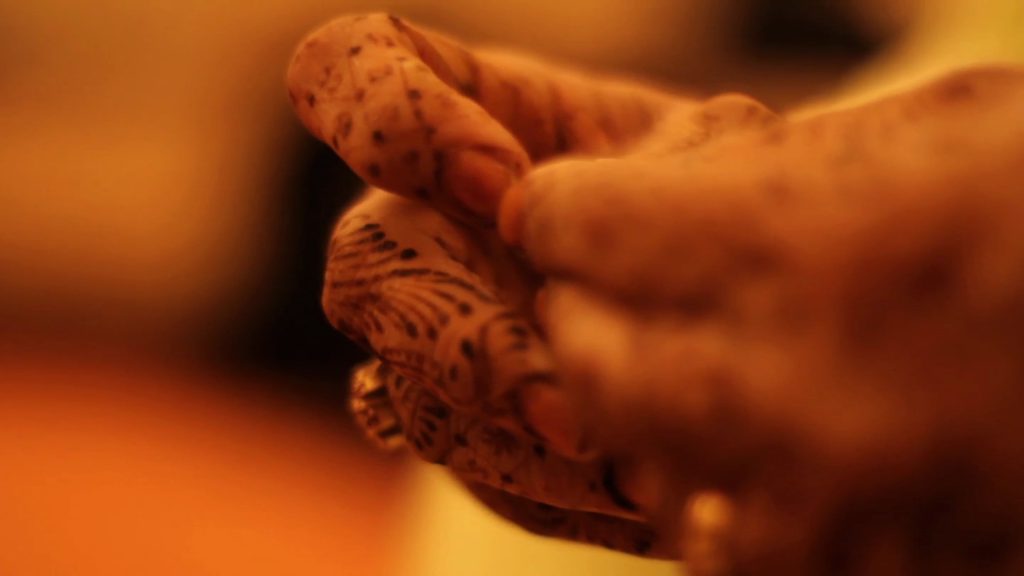
(This article was originally published in English on November 5, 2016. Read the English version here.) उम्र: 64 देश: संयुक्त राज्य अमेरिका महिला जननांग विकृति या FGM के खिलाफ खड़े होने का समय आ गया है। यह लंबे समय से बाकी है। यह तब भी सही नहीं था जब मेरी माँ इससे गुज़री, यह तब भी सही नहीं था जब मैं इससे गुज़री और यह तब भी सही नहीं था जब मैंने अपनी बेटी के साथ यह होने दिया (मेरे माता-पिता के दबाव में)। जिस दिन भारत में मेरे साथ एफजीएम किया गया था, मुझे उस दिन की याद है। मैं लगभग छह या सात साल की थी। मेरे भाई, जो मुझसे उम्र में बड़ा था, उसको एक दोस्त के घर पर खेलने के लिए दूर भेज दिया गया था एक महिला, जिसे मैंने पहले कभी नहीं देखा था, वह आयी और मुझे मेरे माता-पिता के बेडरूम में ले जाया गया जहां एफजीएम किया गया था। मुझे लगता है कि उस घटना और उस दिन की असहज स्मृति को मैंने दबा दिया है – बस उस महिला और मुझे नीचे लिटाए रखने वाली मेरी माँ की तस्वीर को छोड़कर। मुझे याद नहीं है कि खतना के पीछे का कौनसा कारण मुझे बताया गया था। लेकिन मुझे याद है कि मेरी अनुमति के बिना मेरे शरीर के सबसे गुप्त अंग के साथ जो किया गया था, उससे मैं बहुत नाराज़ थी। यह मेरे जिस्म पर अतिक्रमण था। सबसे अधिक, मुझे इस बात पर नाराजगी है कि जिस व्यक्ति पर मैंने उस छोटी उम्र में जीवन में सबसे अधिक भरोसा किया था, उनहोंने मेरे साथ ऐसा होने दिया। हो सकता है, इसीलिए, मेरा एक हिस्सा है जो मेरी माँ को माफ नहीं कर सकता है और मुझे आश्चर्य है कि मेरी बेटी ने मुझे उसी काम को करने के लिए माफ कर दिया है। एफजीएम को सही दिखाने के लिए इसे धर्म के लिबास में ढका जा रहा है। पर जल्द ही साहियो जैसे संगठन इस क्रूर प्रथा को बंद कर देंगे। जब तक सैयदना एफजीएम की निंदा नहीं करते हैं, और अपनी बात अमल नहीं करते हैं, तब तक मुझे खुद को दाउदी बोहरा कहने में शर्म आएगी।
My mother thought she was saving me with khafz
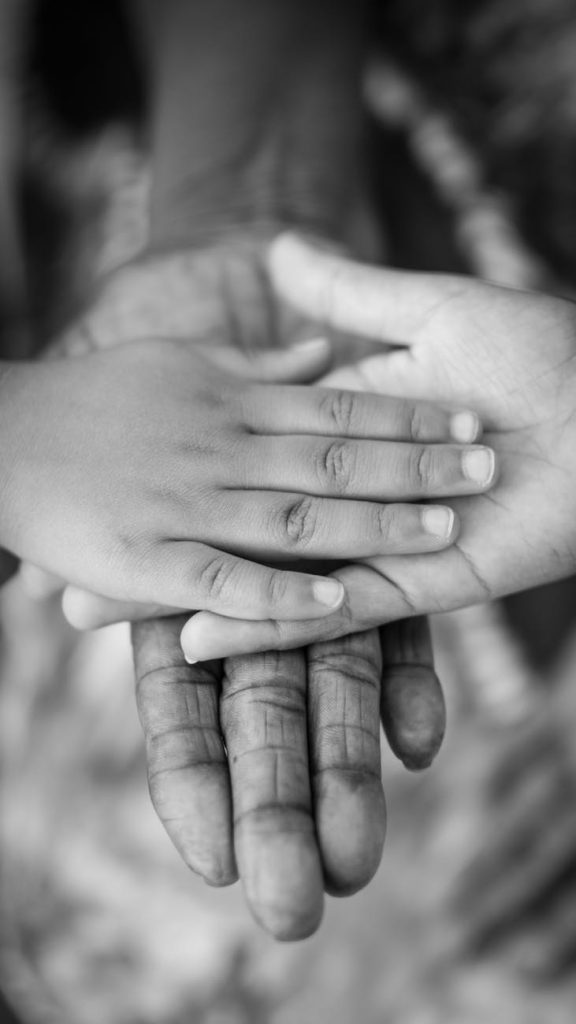
Photo Courtesy Of Kristin De Soto on Pexels.com By Rashida I can recall with crystal clear memory my mother taking me at around age 7 to a dilapidated old Chawl style building in a Bohra Mohalla in Bhendi Bazaar. My mom wore a dark orange saree with a green, white and light orange geometrical design. We climbed up broken wooden steps to go to the first floor on which there were several rooms with closed doors. We knocked on one of those doors and a lady quietly let us in. We sat down on the bare carpet and my mom greeted her with a salaam. The lady disappeared behind a curtained door. I know she came back with washed hands because my mom made me do the traditional salaam that we do to the elders, and her hands were wet and smelled of soap as I kissed them. The lady sat down across from us and I kneeled down to do the salaam. As I was finishing the salaam the lady pulled my pants down. My mom pulled me back, held my hands and covered my face with her sari and put her face in the sari folds so I could see her face, too. I felt a searing pain between my legs and I began to cry, and my mom made big scolding eyes (that’s how she always silenced me to show me her disapproval), and I reduced my crying to a slow whimper. I was very frightened and had no idea what was happening. The lady squeezed the tip of my clitoris firmly with a ball of cotton soaked in red mercurochrome as a final move. She told me to keep that ball of cotton in place and not to touch it until it remained stuck to my clitoris. My pants were pulled up and I sat in my mom’s lap sobbing. The lady appeared again from behind the curtained door and was drying her hands nowon a napkin. She pried open my clenched fist andforced two Parle G glucose biscuits into it, and I clutched them while clinging to my mom in a petrified state with the other hand. My Mom did salaam to the lady with an envelope filled with money and we began to leave. I walked out very slowly holding my mother’s hand and we began to descend the staircase. My mom picked me up and carried me down. I remember that moment most vividly today because my mom had stopped carrying me since I was so tall and grown up. I was relieved and happy that she was carrying me because she had not done that in a very long time. Mom then called for a passing taxi cab. We took taxicabs only for special occasions like a wedding or if we had too many people in a group. I looked up and asked her, “Mummy, we are going in a taxicab to uncle’s home? It is only half full?” And she just smiled and asked me to eat the biscuits. The taxicab drove us to my uncle’s home (my mom’s brother) and as I was playing outside a few hours later, I overheard my mom talking quietly to my aunts (her sister and sister-in-law). “Oh, I thought Rashida would cry and scream,” she said. “She was so good, and look she is already running around. You cannot even tell it has happened. I was told she would shout and kick her feet. But she is all okay.” Mom said she was relieved that the deed was done. Later that afternoon, I told my mom about the bloody ball of cotton that was still loose and lying around in my underwear and she threw it away for me. My brothers were playing around and my 11-year-old brother asked me, “What happened to you? Did somebody do something to you?” He must have overheard the adults talking. He does not remember this incident. I just ran away too scared to answer. The community is getting regressive and male-dominated and under the influence of clergy clout. Despite FGM/C education, the social pressure to follow the diktats is palpable, real and fearful. Social boycott and fear of Laanat holds back the followers in shackles of complete submission. The issue of equality is a blatant cover-up. The clitoral hood is clearly called “Haram ni Boti” in all sermons and all discussions that are held privately in the community. “This piece of flesh has to be taken out or the girl will be sexually promiscuous.” The Sabak or lessons given by the priests and their wives at the mosques, preach to the parents and especially to the mothers that “your daughters will have an extramarital affair or pre-marital sex if you do not do this. Save your family’s name by doing khafz.” I do not hate my mother for doing FGM/C to me. She was an educated woman of her times with a BSc, B.Ed., and an M.S. in Chemistry. She was a teacher and retired as principal of her school. She was a victim of this procedure, too. My mother thought she was saving me. I am sure there was a lot of social pressure from the family and community. My only conversation with her was a casual single comment she uttered as she overheard my friend complaining about health issues her young daughters were facing. My mom quietly said, “We do a procedure to our girls that prevents urinary tract infections in young girls.” I was embarrassed and knew she was referring to FGM/C. So I said, “No, mom, that is wrong and not true!” Mom just walked away. My friend had no idea what we were talking about. We had no conversation about FGM/C or what happened to me at all thereafter. My mom passed away very young at 61 years of age and I will never have my questions answered. I love my
I still don’t get why my mom took me there: A Bohra survivor of female genital cutting speaks out

Photo Courtesy Of luizclas on Pexels.com By Anonymous Country of Residence: India Age: 31 Many communities across the world continue to practice female genital mutilation (FGM). In India, it’s mainly the Bohras, a sub-sect of Shias who practice FGM, also known as khatna. The clitoris and/or labia of little girls is cut or mutilated with the belief that it would curb their sexual desires and stop premarital sex. Many of the women performing khatna have no medical qualifications and are typically women who have learned to perform the cutting from their ancestors. Many midwives perform this in the name of salwaat (or blessings). But they hardly know why they are doing this. When you are a child, your parents and grandparents are people you trust the most. They tell you about not interacting with strangers or not allowing any stranger to touch you in your private areas. Still it’s your close family who takes you for khatna, allowing a complete stranger to touch you inappropriately and cut your clitoris. It’s like being betrayed by the people you believe in and trust the most. I am writing this to share my experience. At the age of six, I was taken out by my mom like any normal day, although most of my childhood memories haven’t made as strong of an impact as this one. We reached a stranger’s place. I went inside the house with my mom. My trousers were removed and then I was told to lie down. I felt extreme pain in my private area. I could feel, although I was instructed to look at the ceiling. I was doing that, and within a few minutes, my mom said, let’s leave. I was still experiencing the pain. The pain was terrible when I urinated. I never really understood why my mom took me there. I still don’t get it. Why do something terrible to a girl which can leave a psychological scar in their mind which never heals? In fact, when I became a teenager, I asked my mom why she allowed this khatna to happen to me. The answer I got was tradition, and that it prevents cancer. Then the other question which immediately popped up for me was, “Why only us?” Later I found out it’s mostly done to curb the sexual desire of girls. This practice ultimately leads the girls to mistrust the people they are supposed to trust the most. It’s not in that instant you realize what happened, but gradually the memory becomes too vivid. Just because something is practiced for generations doesn’t mean it should go on without questioning its existence. People have to change their thinking about existing rules and guidelines to follow in the name of customs. The problem is that if you come out of the shadows and rebel, you may be thought of as an outcast. It’s not us we are afraid of but people we know. Family and friends will be treated differently as well. I believe in taking small steps of at least opening up about what you feel will help you to let go of that which you are suppressing. That will ultimately will give you the confidence of coming out of the shadows and facing the light.
When I found out my friend had undergone female genital mutilation
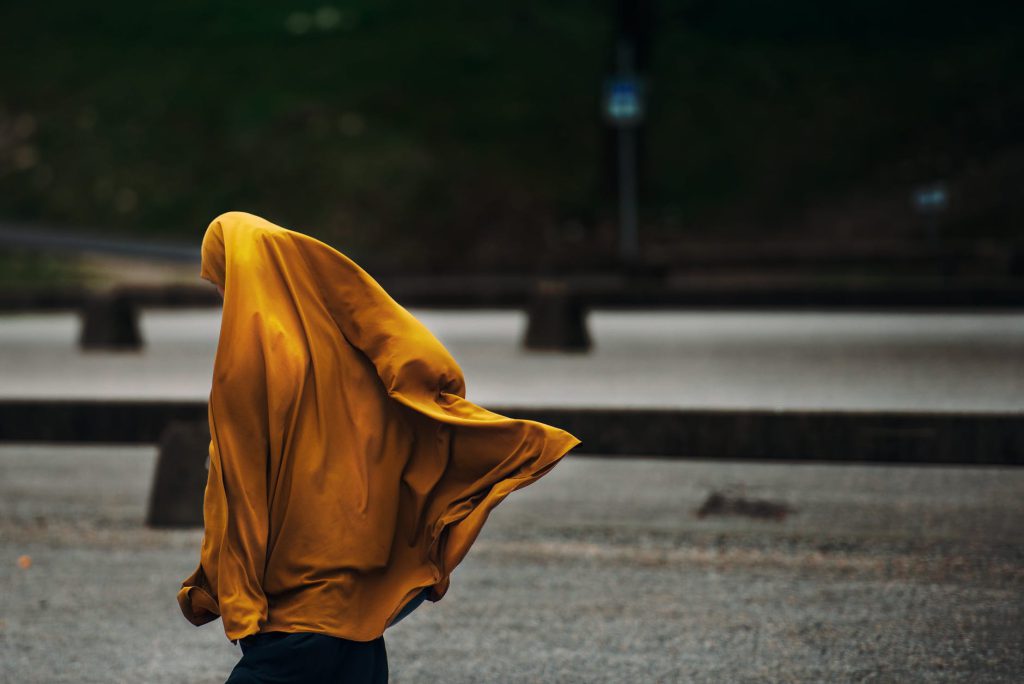
By Amy Vaya Country of Residence: Bahrain The first time I ever heard about female genital mutilation (FGM), I was 20 years old. A friend told me about a book she had read called ‘Desert Flower,’ by former model Waris Dirie, who had undergone the procedure as a girl. Even as she described it, I found myself utterly unable to comprehend such cruelty. Why on earth, I thought, would someone need to do that to another human being, much less a three-year-old child? I hunted down the book and raced through it in a matter of days, learning about her story with a growing sense of horror. Dirie thought it was normal to feel pain every time she urinated, because she had never known anything else. She never even realised she was missing body parts until, as a young woman, she saw her female roommate’s naked body. Both women wept. I wept. All these years later I still remember that book because it was so shocking to me that such a thing is practiced anywhere in the world. And then I put it out of my mind. It wasn’t until quite recently that the subject resurfaced in my life. A dear friend, who was just a passing acquaintance at the time, had posted online about how she had suffered FGM as a child. My mind raced back to this book and I was thunderstruck. It was one thing for it to happen to Waris Dirie in the 1960s in Somalia. It is quite another for it to happen in the 1990s, in the country where I live! I became extremely upset. Even though I did not know her that well, this became personal. She had been raised exactly as I had been, gone to similar schools, had mutual friends, and had similar interests. Our lives overlapped so much except for this one glaring fact—her bodily integrity had not been respected. She had been violated in the worst possible way. I watched videos about the Bohra community in which they discuss khatna with pride and I was disgusted. I thought of the other Bohra friends I’d had through my life and suddenly couldn’t see them the same way anymore. I felt like the women had been mutilated, whether they saw themselves that way or not. I was surprised at the men’s position. Perhaps they were ignorant of the fact this was even happening. The alternative–that they were deliberately inflicting this cruelty on their women–was just too much for me to stomach. I was so upset I spoke to my mother about it. And would you believe it, at her age, that was the first time she was ever hearing about FGM? That should tell you how little this subject is spoken about among communities. If we don’t talk about it, we can’t know it’s happening. And if we don’t know it’s happening, we can’t possibly stop it. FGM should never have begun, and it certainly has no place in the 21st century. Let’s be clear–the aim of FGM in my opinion was never ‘cleanliness’ or any medical benefit–it is purely to reduce or remove a woman’s sexual pleasure, and I fail to see how that benefits anyone. To the parents: If you think it will help you control your teenage daughter’s raging hormones better, think again. She is going to be a sexually mature adult for a lot longer than she is going to be an unmarried teenager under your roof. Do you really have the right to alter the rest of her life? Is ‘tradition’ even meaningful or important if it adversely affects the quality of life so much? To the men: I’d like to give you the benefit of the doubt and say that perhaps you don’t know this is going on among your womenfolk. If that is the case, then learn about it, and protest it. And protest it you must, because this does not benefit you. Do you really want to marry a woman who may never enjoy sex with you? Do you really want to be in a marriage where your wife never initiates sex because it doesn’t feel good or is downright painful for her? To the women: Keep going and be strong. You deserve to not have body parts removed without your consent. It is such a basic human right; it should go without saying. Your body is inviolable and you deserve for it to be respected as such.
